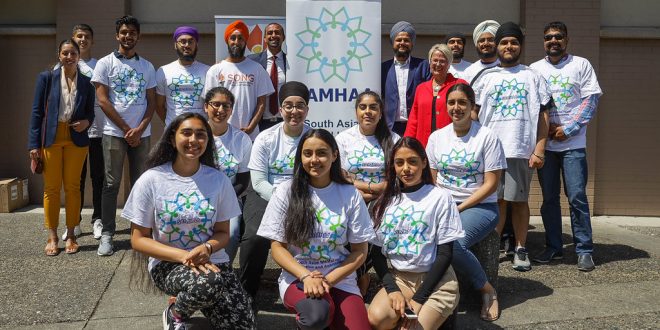South Asian youth will be actively promoting mental wellness and reducing stigma with their peers, families and communities through a new mental health youth ambassador program funded by the Ministry of Mental Health and Addictions.
The South Asian Mental Health Alliance (SAMHAA) received $112,900 in year-end funding to train 100 youth ambassadors by spring 2021. The training will be offered throughout the Lower Mainland and includes the mental health first-aid certification course, developed by the Mental Health Commission of Canada.
Additionally, training and mentoring in cultural safety, overdose crisis education, health-care system navigation skills and learning how to use the arts to promote dialogue about mental health will be provided to participating youth ambassadors.
“For far too long, many South Asian people with mental health and addiction challenges have felt isolated and suffered in silence because of a lack of culture- and language-specific supports,” said Judy Darcy, Minister of Mental Health and Addictions. “This exciting program will empower young people to become mental health advocates, and they, in turn, can help more people to open up and find the supports they need to begin a pathway to healing and hope.”
South Asian communities are one of the largest ethno-cultural groups in the province and tend to access mental health and substance use services less often than the general population. SAMHAA is tackling this disparity by working with local non-profit societies, faith communities and service providers to raise awareness, build capacity and reduce stigma around mental health, with a focus on leveraging the expertise and influence of second-generation South Asian Canadians.
“Young people are leading the charge when it comes to removing the shame and blame around mental health and addiction challenges,” said Kulpreet Singh, founder of the South Asian Mental Health Alliance. “This training will give them the skills and support they need to help their peers and family members make mental wellness a priority.”
Once the youth ambassadors have completed their training, they will lead projects to spark discussions on mental health and raise awareness of supports and services available in their communities.
“Talking honestly about your mental health can be really daunting,” said Tanisha Kaur Gill, a Grade 11 student and youth ambassador. “But by using music, dance, poetry and other art forms to talk about mental health, we can break the ice and make it easier for our friends and family members to start having these important conversations.”
Learn More:
 Desi Today Magazine
Desi Today Magazine




